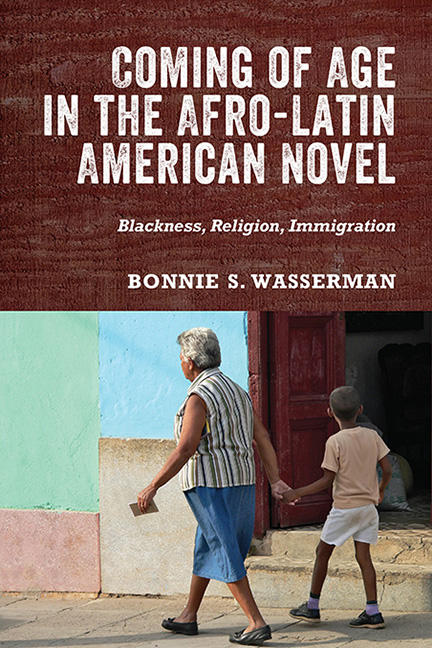Book contents
- Frontmatter
- Contents
- Introduction
- 1 The Intergenerational Bildungsroman in Daughters of the Stone and Ponciá Vicencio
- 2 The Epistolary Afro-Cuban Bildungsroman
- 3 Boys to Men: Masculinity in The Brief Wondrous Life of Oscar Wao and City of God
- 4 Reinventing the Afro-Latin American Bildungsroman
- Conclusion
- Bibliography
- Index
Conclusion
Published online by Cambridge University Press: 16 July 2022
- Frontmatter
- Contents
- Introduction
- 1 The Intergenerational Bildungsroman in Daughters of the Stone and Ponciá Vicencio
- 2 The Epistolary Afro-Cuban Bildungsroman
- 3 Boys to Men: Masculinity in The Brief Wondrous Life of Oscar Wao and City of God
- 4 Reinventing the Afro-Latin American Bildungsroman
- Conclusion
- Bibliography
- Index
Summary
This study has examined how a centuries-old European genre, the bildungsroman, has been transformed by contemporary Afro-Latin American novelists to address key aspects of the diaspora. Postcolonialism provides a productive theoretical framework for analyzing this literature, especially because it explores the movement of populations domestically and internationally. According to Ashcroft, Griffith, and Tiffins, “A major feature of post-colonial literatures is the concern with place and displacement. It is here that the special post-colonial crisis of identity comes into being” (8). The authors define displacement as involving enslavement, migration, and hybridity—three elements of the bildungsroman that are demonstrated throughout this study.
The study began with an examination of the effect of slavery on young characters growing up. In chapter 1, we saw Fela captured by slave traders, taken on the Middle Passage, and treated brutally on a plantation. The story of Ponciá's family depicts the lengths to which slaves and their descendants will go for freedom and to stand up against oppression. And, in City of God, the characters encounter slavery in a dreamlike state in which they have traveled back in time to witness the brutal treatment of enslaved people on a plantation that once stood on land occupied by the favelas in which the characters grew up. Interestingly, these Afro-Latin American writers use curses such as those of Oshun and the fukú to explain the Middle Passage in a postcolonial way. That is, by attributing the origins of the Middle Passage to African folkloric sources, they deprive the Europeans of the power to originate this saga.
Once in the New World, these Afro-Latin American stories focus on the creation of homes and families—some in family sagas that cross generations. Recall from chapter 1 how central the quest for home was for Fela's descendants and how her daughter Mati got her family's land back from the hacendados using curses and healing power. In Ponciá Vicencio, Ponciá dreams of a home in the city because there are few opportunities for young Afro-Brazilian females in the rural area. Creating a home is key to the formation of the identities of these young characters.
- Type
- Chapter
- Information
- Coming of Age in the Afro-Latin American NovelBlackness, Religion, Immigration, pp. 146 - 150Publisher: Boydell & BrewerPrint publication year: 2022

